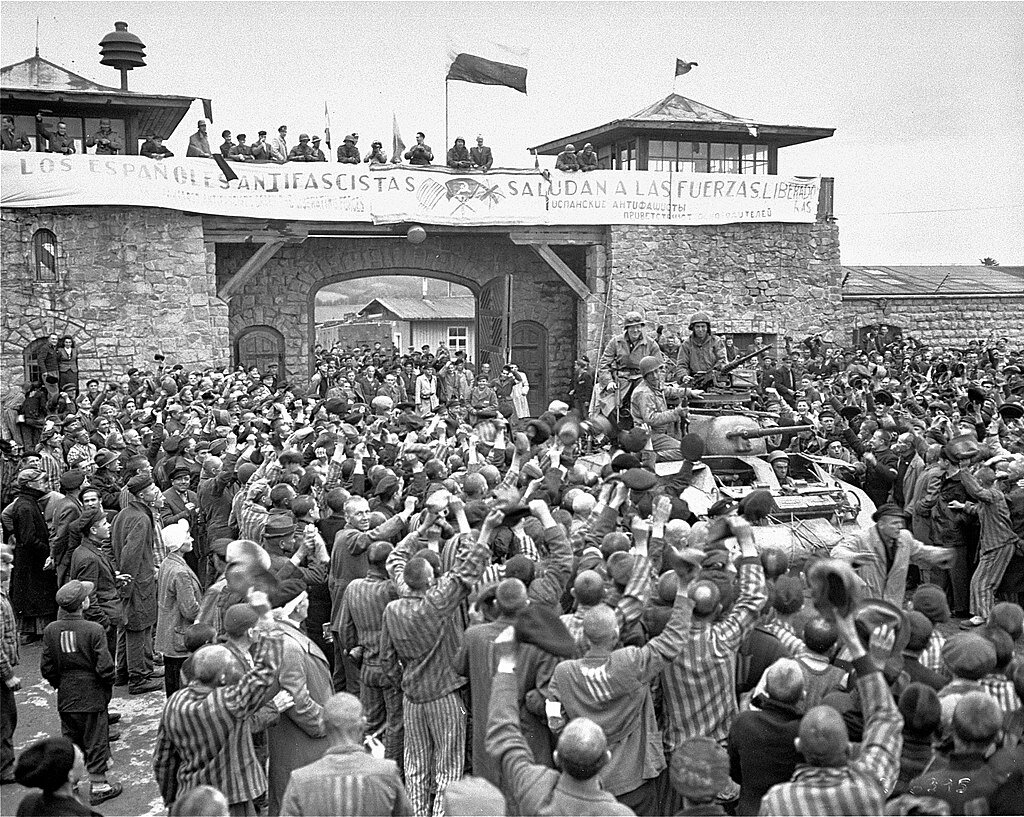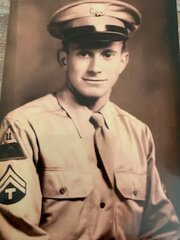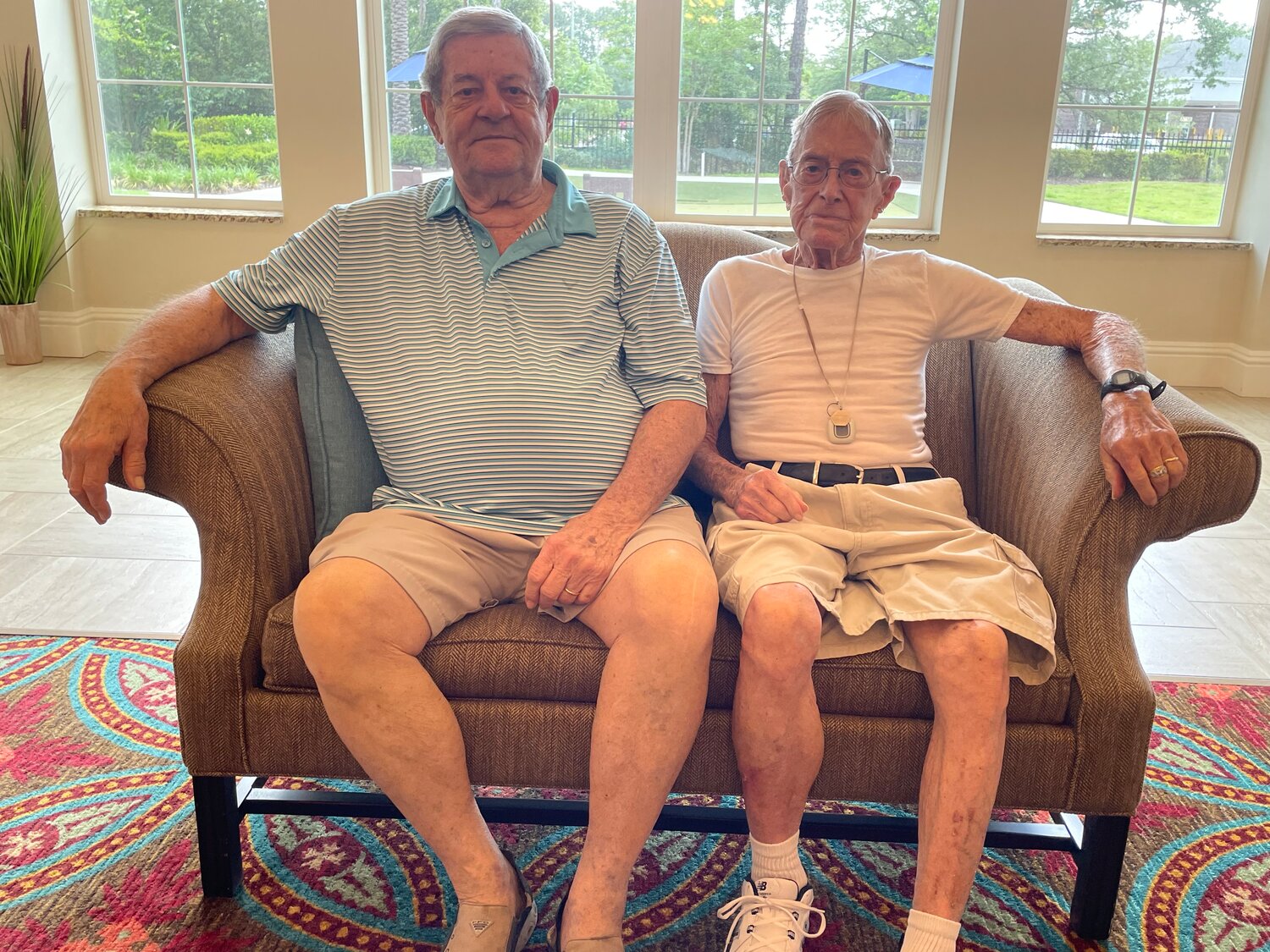The Battle of the Bulge: A grim chapter in Sam Humphrey's life
ORANGE PARK – Vaughn "Sam" Humphrey is the oldest living survivor from the Battle of the Bulge, the Nazi's last major offensive in World War II. The Nazi's surprise attack led to …
This item is available in full to subscribers.
Attention subscribers
To continue reading, you will need to either log in to your subscriber account, below, or purchase a new subscription.
Please log in to continueDon't have an ID?Print subscribersIf you're a print subscriber, but do not yet have an online account, click here to create one. Non-subscribersClick here to see your options for subscribing. Single day passYou also have the option of purchasing 24 hours of access, for $1.00. Click here to purchase a single day pass. |
The Battle of the Bulge: A grim chapter in Sam Humphrey's life
ORANGE PARK – Vaughn "Sam" Humphrey is the oldest living survivor from the Battle of the Bulge, the Nazi's last major offensive in World War II.
The Nazi's surprise attack led to the largest and bloodiest single battle fought by the U.S.
After being drafted and deployed oversees, Sam drove a Jeep in the 41st Cavalry Reconnaissance Squadron of the 11th Armored Division. He was awarded a Bronze Star for his service.
When the war ended, Sam stoically and somberly returned home. He returned to Iowa. He found work. He never mentioned how he earned his Bronze Star. He never mentioned his time in the 11th Armored Division, under Gen. George Patton's leadership. He never talked about his experience in the war, that grim chapter which had upended his life.
Sam, 103, now lives in Orange Park. He still chooses to not let that chapter define his life. Instead, Sam wanted to talk about the joys – his childhood, his factory job, his wife and his family. Sam lives with his brother, Dave Humphrey. The two brothers grew up in North English, a small town in Iowa neighboring South English.
"We lived five miles north of South English," Sam said. "There was nothing there. Just a river and a bridge."
He rode a horse to a schoolhouse 13 miles one way and 13 miles back. Because of the financial hardships brought by the Great Depression, Sam's father lost the farm. They moved to Hinkletown, Iowa.
“Not much there either," Sam joked.
Sam looks back fondly on working on the family farm – even when they had to spread the "fertilizer." Sam and Dave often pulled cow manure behind a horse to spread it over the fields. It was a crappy job, they joked. The Humphrey family grew corn, oats and soy. They alternated their crop fields by growing clover to re-enrich the soil. Despite being the Great Depression, Sam said he found ways to be cheerful.
Everyone in the town had nicknames, Sam said.
Two neighbors were named "Puddy" and "Fizzle." While Vaughn at first, "Sam" stuck for the rest of his life. Dave went by "Chuck" briefly. Their father was called "Prink" but his real name was Clarence. Their sister was dubbed “Tiny.”
Sam was drafted in 1942. He returned to Iowa in 1945.
"I was homesick," Sam said.
Sam worked for the Collins Radio Company in Cedar Rapids, Iowa. That's where he met his wife, Burnadean. They were married in Rock Island, Illinois in the 1950s.
In 1972, Sam retired from working his factory job. He visited family in Bonita Springs during the winters. In 1996, he made Bonita Springs his permanent residence until Hurricane Ian in 2022.
His house was flooded. He had to be carried out from the wreckage of his home.
“They had to carry him out. The water came so fast,” Dave said.
Dave lived in Palagio in Orange Park with his wife, Carolyn. He recommended Sam to join him. The two brothers have been living together since 2022.
“I like happy hour,” Sam said with a laugh.
He enjoys a cold one with his brother every day.
“I’m not on a special diet. I eat whatever I like,” he said.
Sam is here for good time and a long time, too. He's found happiness focusing on life's small joys. He's never opened up about his time in World War II, and that is a decision unlikely to change.
After researching the 11th Armored Division, it is easy to understand why. The 41st Cavalry Reconnaissance Squadron, which included Sam, liberated the concentration camps of Mauthausen and Gusen.
"The unspeakable atrocities that the troops witnessed in these camps bore witness to the horror of the Holocaust," according to The 11th Armored Division Legacy Group.
"Mauthausen was one of the worst of the concentration camps (during the Holocaust). 'One of the worst,' a phrase of comparison, is not used lightly here," according to The National WWII Museum.
"Days of excruciating toil (of those imprisoned) frequently lasted eleven hours in the summer months and nine hours in the winter. Once they extracted blocks of stone from the cliff, the prisoners next had to break them into smaller fragments... After several months of work, the SS began to kill prisoners, condemned for political offenses, there with poison gas in March 1942."
The 41st arrived on May 5, three days before Nazi Germany surrendered, and witnessed man-made horrors beyond comprehension.
By the war's end, the 11th Armored Division suffered 2,877 casualties – 432 dead, 2,394 wounded, 11 missing in action and 40 taken prisoner.












